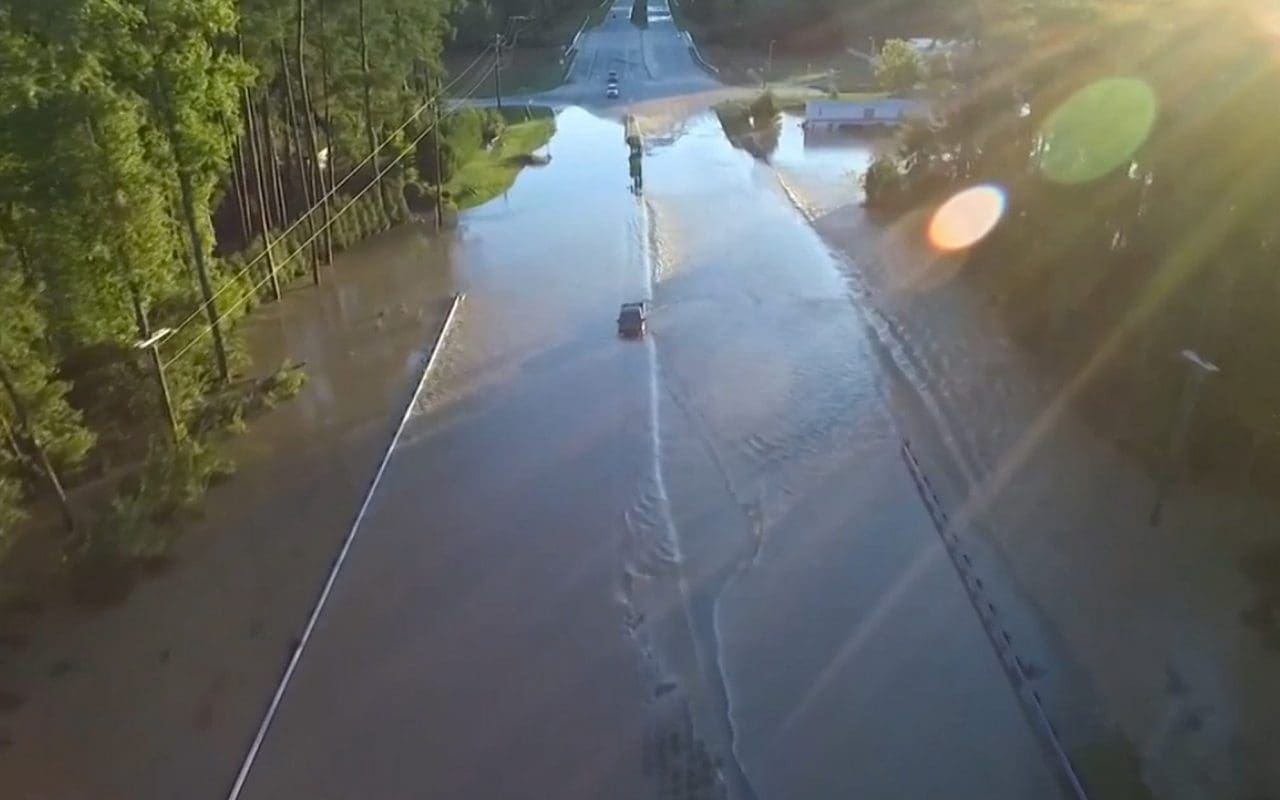
The drive through North Carolina follows winding roads nestled among trees showing their golden autumn colors. It can be hard to imagine that many of these roads, connecting town to town across the state, were recently under water due the devastating flooding that accompanied Hurricane Matthew. The hurricane blew in October 8 with little consequence to most areas of the state, but parts of eastern North Carolina were impacted for weeks because of widespread flooding and power outages.
Thousands of homes and businesses in hard-hit communities were damaged, and hundreds of people, including many students enrolled on UNC campuses, remain displaced from their homes. Along the coast, UNC Wilmington and Elizabeth City State University experienced only minor damage and were back in operation in a couple of days. Further inland, however, East Carolina University, Fayetteville State University, and UNC Pembroke were closed for a week or more.
While the floodwaters have finally receded and life for most has begun to return to normal, the effects of Hurricane Matthew still linger. Affected communities are coming together to support one another and rebuild after the storm, and UNC institutions are a driving force in support of those efforts. Entities of the UNC system are lending both physical and financial support, as well as expertise, to help the communities they call home.
One such entity is the Small Business and Technology Development Center (SBTDC) which has partnered with state agencies to activate the North Carolina Small Business Emergency Bridge Loan Program. This program has raised $2.6 million to provide loans to small businesses that can demonstrate damage from Hurricane Matthew.
Scott Daugherty, SBTDC Executive Director, said, “North Carolina ran a similar program in response to Hurricane Floyd in 1999 that made 217 loans totaling $1.6 million to affected businesses. This quick response is exactly what small businesses need after the impact of Hurricane Matthew.”
These loans will give businesses the opportunity to get back on their feet more quickly and continue to contribute to the state’s economy.
Another entity is UNC-TV, which produced special programming to document the initial storm and the flooding and devastation that followed. The network sent producers out into the field to get the first-hand stories of those affected by the flooding, as well as those helping with relief efforts. UNC-TV secured a waiver from the FCC to use this footage in a virtual fundraiser to help raise money for the North Carolina Disaster Relief Fund for Hurricane Matthew. The programming not only raised relief money, but gave more than 46,000 viewers who tuned in a glimpse into the extreme hardships caused by Hurricane Matthew.
UNC campuses have also supported affected students, employees, and others in their communities by holding donation drives. UNC President Margaret Spellings traveled to UNC Pembroke last week to tour the campus in the aftermath of the flooding, where she had the opportunity to personally thank those involved in helping students and the community in recovery efforts.
The UNC system has come together not only for their communities, but for each other, giving support and sharing resources. In the days following the storm, North Carolina Central University helped provide food services for students and essential staff who were unable to leave campus. North Carolina State University provided temporary housing for displaced international students while UNC Pembroke was closed due to area flooding. NC State also put school rivalry aside to share its athletic facilities with displaced East Carolina University.
ECU Athletic Director, Jeff Compher, said, “We are extremely grateful to Debbie Yow and her administrative team at NC State for opening their campus to us for a women’s soccer game and providing a practice venue for our volleyball team prior to their departure for a road match.”
Affected areas can expect the continued support of the University of North Carolina as they progress in the coming weeks. Even as President Spellings toured Pembroke, a delivery truck arrived at UNCP with donations of food and supplies collected by two sister institutions–Winston-Salem State University and North Carolina Agricultural and Technical State University. The system may have 17 campuses, but it is one university, one community, helping to move North Carolina forward after Hurricane Matthew.